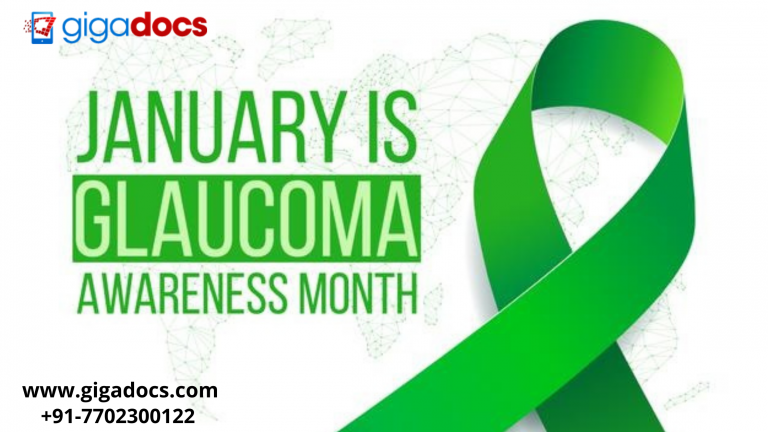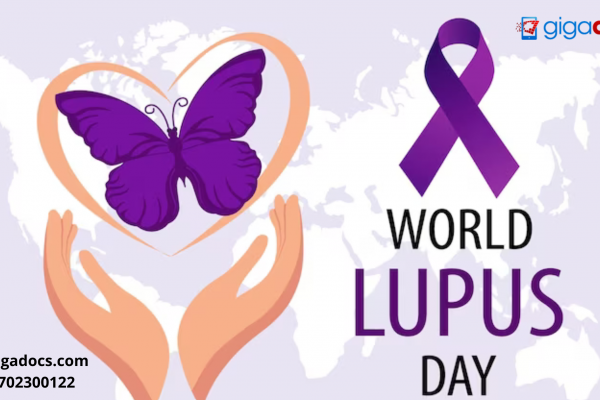Glaucoma has little or no initial symptoms. Half of those who have it are unaware that they have it.
Glaucoma is a condition that causes fluid levels in the eye to rise, causing eye-sight to gradually deteriorate, mostly without alert. While the most typical glaucoma types mainly affect people in their forties and fifties, glaucoma can affect people of all ages.
Glaucoma vision loss is caused by optic nerve damage. This nerve functions similarly to an electric cable with over a million wires. It’s in charge of getting image data from the retina to the brain.
A cure for glaucoma is yet to be found. However, medication or surgical intervention can slow or prevent further vision loss. The appropriate care is determined by the type of glaucoma and other factors. Early detection is critical for halting the disease’s progression.
Types of Glaucoma
There are almost no symptoms in the most common form of glaucoma. It slowly begins with peripheral or side vision loss and gradually advances. A patent may not notice anything until significant vision loss occurs. Here are the two types of Glaucoma:
1. Primary Open-Angle Glaucoma:
The most common type of glaucoma is primary open-angle glaucoma. It happens gradually, as the eye does not drain fluid as well as it should, causing eye pressure to rise and begin to harm the optic nerve. This condition frequently goes unnoticed until significant vision loss has happened. Typically, peripheral vision is the first to be impacted. Central vision can also be harmed over time. Optic nerves in some people can be sensitive to normal eye pressure. That means they are at a higher risk of developing glaucoma than the general population. Regular eye exams are essential for detecting early signs of optic nerve damage. There are almost no symptoms in the most common form of glaucoma. It slowly begins with peripheral or side vision loss and gradually advances. A patient may not notice anything until significant vision loss occurs.
2. Acute Angle-Closure Glaucoma-
It develops quickly and causes a variety of symptoms, including:
- Sudden loss of vision
- Eye or brow pain
- Headaches
- Redness of the eyes
- Nausea
- Vomiting
- Pupil dilation
Many people suffer from angle-closure glaucoma (chronic angle-closure glaucoma). They do not realize they have it until the damage is severe because initially, there are no symptoms. Angle-closure glaucoma can lead to blindness if not treated promptly. If you already have symptoms of acute angle-closure glaucoma, you should get an eye test done right away. Although one cannot revise glaucoma-related vision loss symptoms, treatment can, however, slow the spread of the disease.
Glaucoma Risk Factors
People with a glaucoma lineage are also at a higher risk. You may be at greater risk if you have diabetes, hypertension, or take corticosteroids for a medical condition. It is critical to see your eye doctor twice a year, especially if you are at higher-than-average risk of developing glaucoma. This includes individuals who:
- Have had an eye injury
- Have optic nerve thinning
- Have thin corneas in the center
- Are over the age of 40
- Have diabetes, migraines, poor blood circulation, or other pervasive health issues
- Have high eye pressure
- Have glaucoma in their family
- Use long-term steroid medications
- Are farsighted or nearsighted
Glaucoma in Children
Furthermore, the symptoms of childhood glaucoma differ from those of adults. According to the Glaucoma Research Foundation, symptoms of congenital glaucoma involve hiding from bright light, cloudy corneas, excessive tearing, squeezing of eyelids, and large eyes.
Young kids with juvenile glaucoma may experience vision loss, head or eye pain, consistently red eyes, excessive blinking or squeezing of the eyelids, difficulty adjusting to the darkness.
| Glaucoma Awareness Month Did you know; January is National Glaucoma Awareness Month? Since it is not easily diagnosed, millions of people are affected with glaucoma but only half of them are aware of it. Glaucoma is known as “the sneak thief of sight” because there are no symptoms and vision loss is permanent. A person can lose up to 40% of their vision, even without their knowledge. |
Protecting Eyes from Glaucoma
Everyone can safeguard their eyes from sudden blindness by doing the following:
- Maintaining a healthy body weight: Retaining a healthy body weight lowers your risk of developing diabetes or high blood pressure, lowering your risk of developing glaucoma or glaucoma-like retinopathy. Maintain a healthy diet and try to exercise regularly.
- Consume a well-balanced diet rich in fruits and vegetables: Studies have found that eating more leafy greens lowers the chances of developing glaucoma by 20 to 30%. Nitrates found in green vegetables can be transformed into nitric oxide, which can strengthen blood flow and help control eye pressure.
- No Smoking: Cigarette smoking increases the risk of glaucoma and harms overall eyesight.
- Monitor your blood pressure: If you have hypertension, you should check your blood pressure every morning and night. Keep a pressure log and see your doctor if your pressure spikes or if you have perennially high pressures. Regular physical activity low sodium diet can help you manage your pulse rate and reduce your risk of developing hypertension-related glaucoma.
- Have a detailed eye test: Make an appointment with your optometrist or ophthalmologist for an eye exam once a year, and ensure they test you for glaucoma.
Regular Eye Tests with Gigadocs
According to the WHO, glaucoma is the second leading cause of blindness globally. There are almost no symptoms. Glaucoma is the cause of visual impairment in people aged 60 and up. Because glaucoma begins with peripheral or side vision loss, one may not notice anything until significant vision loss occurs.
Regular eye tests are significant for people at a higher risk of glaucoma. A thorough eye examination is the most effective way to safeguard your vision from glaucoma. Early detection and treatment of glaucoma can indeed help stop blindness.
Gigadocs offers regular eye tests with the best Ophthalmologists around you. Download the Gigadocs app to book your consultation today!
- IOS App – apple.co/2W2iG4V
- Android App – bit.ly/33AQoRC
To know more and schedule a Virtual Consultation demo, Email at info@gigadocs.com




